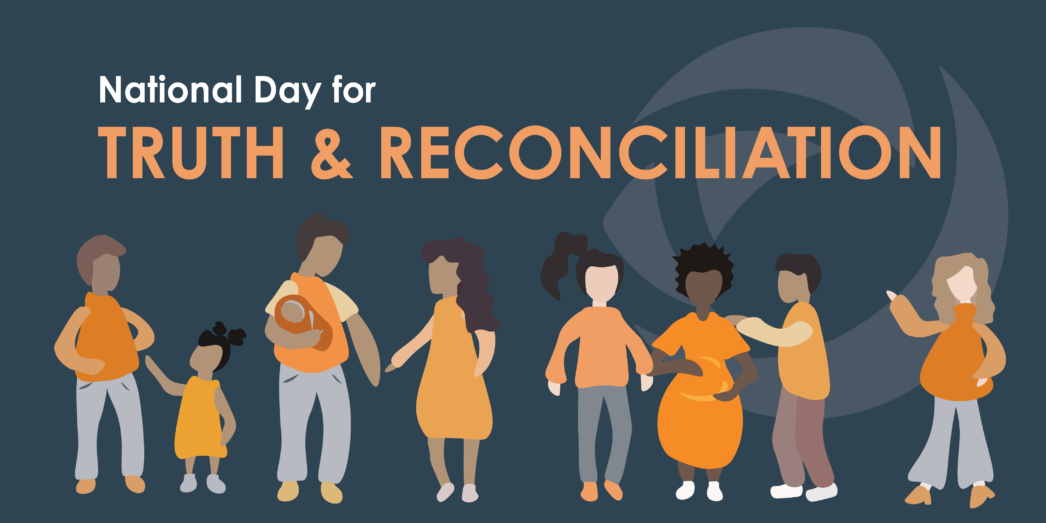The Government of Canada has declared September 30th the National Day for Truth and Reconciliation.
Due to the recent discoveries of unmarked grave sites at former residential schools, it is more important than ever that we take action to support Indigenous communities; remember the children who were sent away and never made it home; and honour the survivors. September 30this a day that opens the door to global discussion, education, and reconciliation.
This year, to support National Day of Truth and Reconciliation, CanFASD staff members and stakeholders are dedicating September 30thto further educate themselves on Indigenous communities and the legacy of trauma caused by the residential school system. We encourage everyone else to do the same. In support of this, the University of Alberta is offering a free online course to inform Canadians about Indigenous history.
Over 10 years ago, in honour of the victims and survivors of the residential school system, Canada established the Truth and Reconciliation Commission of Canada (TRC) to create a historical record of the residential school system, provide recommendations to further reconciliation, and provide the opportunity for Indigenous people to share their stories and experiences.
In 2015, after years of research and consultations, the TRC published a document outlining 94 Calls to Action. This document was created with the intention to urge all levels of government, federal, provincial, territorial, and municipal to work together with Indigenous communities and make policy changes in efforts to repair harms caused by the residential schools and to further reconciliation.
Fetal Alcohol Spectrum Disorder (FASD) is recognized in two of the 94 calls to action. Call to Action #33 discusses the need for governments to address and prevent FASD and develop culturally safe prevention programs. Call to Action #34 discusses the need for governments to make changes to the criminal justice system to improve outcomes for offenders with FASD.
Last year was the fifth anniversary of the Truth and Reconciliation final report. While some great work has been done by community members and organizations, we feel that the Government of Canada has not done nearly enough to address the TRC Calls to Action, particularly #33 and #34.
CanFASD – in partnership with numerous stakeholders – published the following reports that outline how Canada can address the TRC calls #33 and #34:
- Consensus Statement: Eight Tenets for Enacting the Truth and Reconciliation Commission’s Call to Action #33
- Truth & Reconciliation Call to Action #34: A Framework for Action
- FASD Justice and Reconciliation: Tough Questions, New Collaborations
As part of our commitment to reconciliation, CanFASD released a Commitment to Indigenous Partnership, Reconciliatory Research, and Action in April 2020. As part of our commitment, we will continue to improve our understanding of the impact of colonization and subsequent assimilatory policies and practices on intergenerational trauma, substance use, addictions, and FASD. We will further:
- Build meaningful partnerships with Indigenous peoples and communities that are based on the values of reconciliation.
- Develop research that is guided by community needs, values, and knowledge systems.
- Advocate for Indigenous-led research through sustainable and long-term funding
We hope the government will fulfill their commitments to Indigenous Peoples and dedicate themselves to improving the health and wellbeing of Indigenous communities across Canada.

